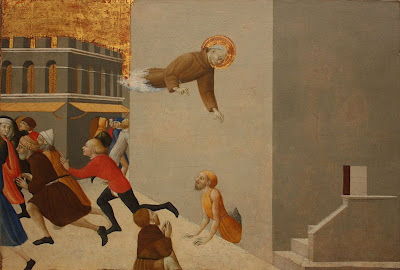Our friend, Monk-in-Training, reminded me this morning that today is the Feast of St. Ignatius of Loyola. Ignatius, of course, is historically, one of the most well known proponents of kataphatic spirituality - that is, using images in prayer. Here's somethinge brief about that from Inner Compass: An Invitation to Ignatian Spirituality by Margaret Silf:
He began to find himself, in imagination, present in the scenes, conversations, and stories of the Gospels, and he began to participate in the plots of these stories. It was the start, for him, of an adventure into imaginative prayer that was to become a most powerful catalyst for the growth of his personal relationship with God..Sadly, I've heard some praying people assert that apophatic prayer (without images) is somehow "better" or more authentic than kataphatic prayer. I don't think such an assessment is at all justifiable. The kind of prayer that a person finds accessible is largely a matter of temperament and personality. If our prayer brings us to surrender to God, then it's "good" prayer. If it doesn't, then something needs to be re-examined.






 Artist: D. Kristen Herrington
Artist: D. Kristen Herrington












 Lego Church
Lego Church





